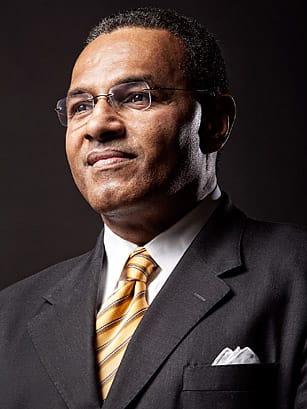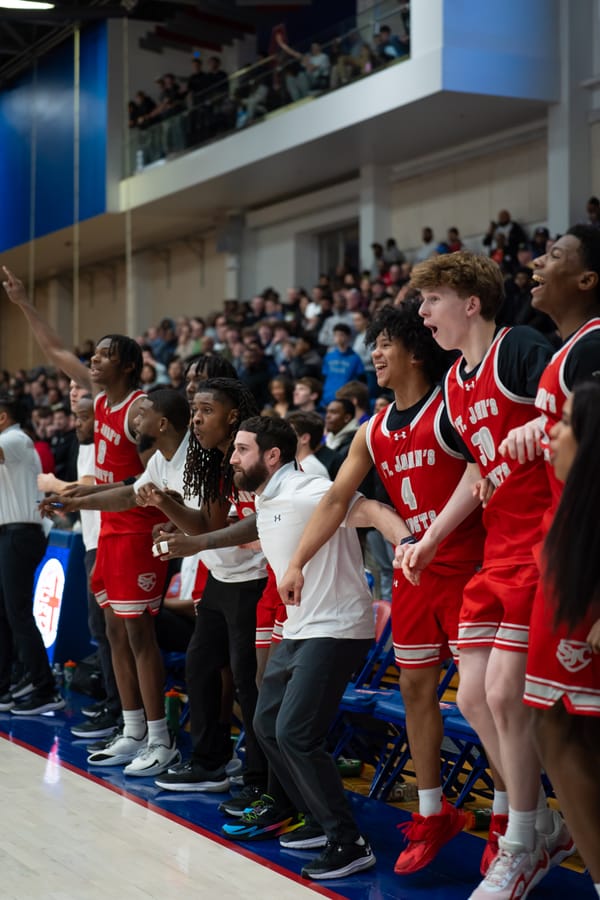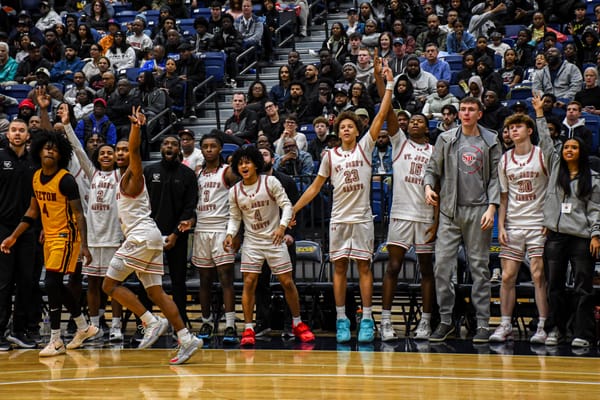On teaching impeachment at St. John's

 Trump’s impeachment is history in the making and Mrs. Gelso decided to include this event in her AP Lang class in order to review rhetorical analysis.
Trump’s impeachment is history in the making and Mrs. Gelso decided to include this event in her AP Lang class in order to review rhetorical analysis.
For the latest on the impeachment trial, read Orla Collin’s overview.
The lesson about impeachment was focused on rhetorical analysis, a big portion of the AP Lang curriculum, and arrangements in particular. Rhetorical Analysis looks at the devices and techniques employed by the author and how it affects the audience. The lesson began as her students read and annotated the calls at the center of the investigation between President Trump and President Zelensky of Ukraine. This focused on analyzing word choice that showed power dynamics between the two national leaders.
After reading the transcripts of the controversial calls, the students were asked to read two opening statements of people chosen to testify before Congress. Here, the students focused on aspects of arrangement that helped strengthen the speaker’s argument. In other words, they identified differences in structure and placement of details between two opening statements.
Lastly, the students read and compared the executive summaries of both Democratic and Republican parties. They compared the arguments and structure of both summaries. All of these assignments were followed by an in class discussion. To wrap up this unit, each student was asked to write a two-paragraph mini-paper about one or two of the documents they were given to analyze focusing on arrangement, which is one of the five canons of rhetoric.
Editorial note: The Sabre interviewed Ms. Gelso when the class completing their lesson and discussed what her goals and motivations were in teaching impeachment.
Q: What inspired you to do this lesson?
A: “There are a couple of reasons I felt it was important for us to explore some of the documents related to the impeachment. Firstly, an impeachment trial is rare, and voting to impeach a president is even rarer. This makes it a moment worthy of our attention. Additionally, so much about the impeachment has to do with the topic of our class: rhetorical technique and effectiveness. Impeachment is a constitutional process, but the way in which our elected officials talk about events, people, and issues is rhetorical. This rare moment is thus our curriculum in action.”
Q: What were your goals for this lesson?
A: “My goal was for students to see argumentation in a real, current, important situation. There is no way to look at the arguments of some of the documents related to the impeachment—opening statements, articles, summaries, reports—without recognizing the circumstances that brought them to fruition.”
Q: Would you do this or something similar in the future, if so would you change anything?
A: “I will absolutely do things like this in the future. I am already thinking of a unit revolving around debates and speech-making for next fall leading up to the election.”




